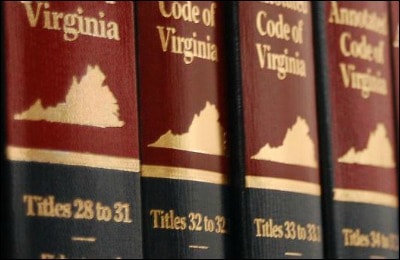 So, you think, or you know, that your spouse is cheating on you. As devastating as this discovery can be, many people are just as devastated to find out that Virginia law can, and often does, protect the adulterer.
So, you think, or you know, that your spouse is cheating on you. As devastating as this discovery can be, many people are just as devastated to find out that Virginia law can, and often does, protect the adulterer.
In Virginia, adultery is defined as the act of sexual intercourse by a married person with any person who is not their spouse. It is a ground for divorce under Virginia Code § 20-91. It is also illegal, a Class 4 misdemeanor according to Virginia Code § 18.2-365. While adultery as a crime is rarely, if ever, prosecuted, the fact that adultery is still technically illegal in Virginia has a significant impact on many divorce cases.
For a court to grant a divorce on the ground of adultery, Virginia law requires proof by “clear and convincing” evidence, a higher standard of proof than other grounds for divorce. This incredibly high burden of proof alone can make proving or sustaining an adultery claim very difficult. However, the alleged adulterer has one further protection to invoke if he or she chooses: “pleading the Fifth.”
Because adultery is still on the books as a crime in Virginia, a spouse accused of adultery can assert his or her Fifth Amendment privilege against self-incrimination when asked about it in divorce proceedings. Meaning, the accused spouse can simply refuse to answer questions about their alleged affair—either in court, in depositions or in written discovery. Further, the court in the divorce case is not permitted to use the alleged adulterer’s invocation of their Fifth Amendment privilege against them.
Between the higher burden of proof and the protection offered by the Fifth Amendment, many spouses who file for divorce on the ground of adultery end up spending a lot of time, money and resources in attempting to prove their case—often with little to no success. The decriminalization of adultery in Virginia would preclude parties accused of adultery from stonewalling questions and discovery requests, and, in certain ways, could foster cheaper and less time-consuming resolutions of many cases.
There are many family law attorneys who would like to see adultery decriminalized in Virginia, and one local practitioner has made significant efforts to that end. Virginia State Senator Scott Surovell, himself a family lawyer in Fairfax, recently introduced legislation to decriminalize adultery in Virginia. His bill would have made adultery no longer a misdemeanor in Virginia, while leaving it punishable by a $250 fine as a civil penalty. This was only the most recent effort in this regard by Senator Surovell, who has introduced legislation to achieve the same result in several prior years. But, as in previous years, the Senator’s bill did not pass, so adultery remains a crime in Virginia.
In addition to the adulterer being shielded by the Fifth Amendment in their divorce case, the “other man” or “other woman” can possibly also invoke the same privilege against self-incrimination if questioned in the divorce. To the surprise of perhaps many, any act of sexual intercourse outside of marriage constitutes a crime in Virginia. Virginia Code § 18.2-344 states: “Any person, not being married, who voluntarily shall have sexual intercourse with any other person, shall be guilty of fornication, punishable as a Class 4 misdemeanor.” Again, while this crime may be rarely prosecuted, it affords anyone who engaged in an affair with a married person the ability to invoke the Fifth Amendment and refuse to answer questions about the affair in a divorce case.
Regardless of one’s political or personal beliefs, the reality is that these criminal laws certainly make many divorce cases filed on the ground of adultery more costly and time consuming than other divorce cases. Ironically, they also serve to provide a level of protection to spouses accused of adultery.
If you have any questions about proving or defending against an allegation of adultery in your divorce case, be sure to consult with an experienced divorce attorney. From offices in Fairfax, Manassas, Ashburn, Arlington and Fredericksburg, the divorce attorneys at Livesay & Myers, P.C. represent clients throughout Northern Virginia. Contact us to schedule a consultation today.
See also:
